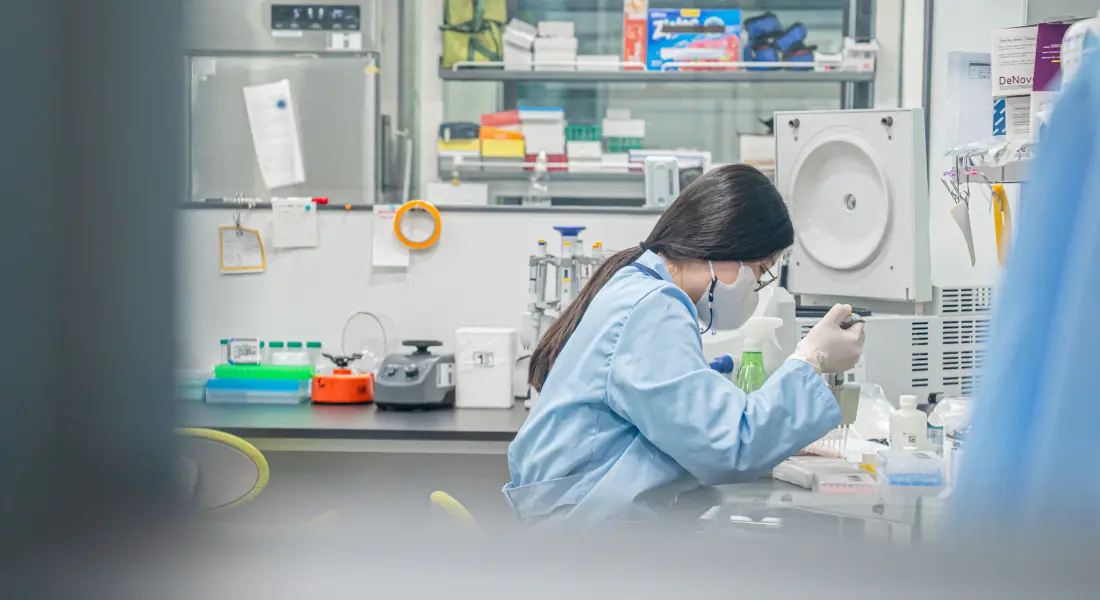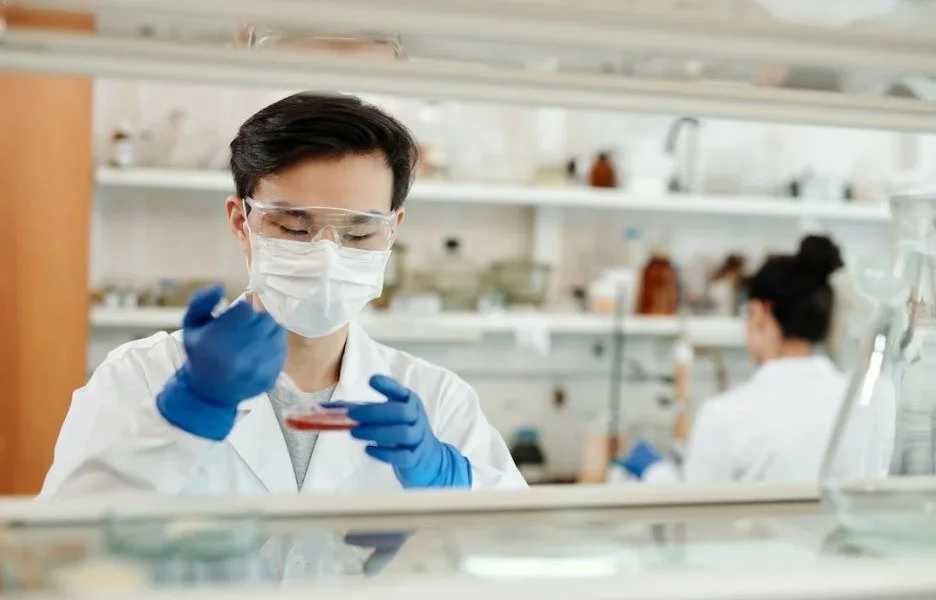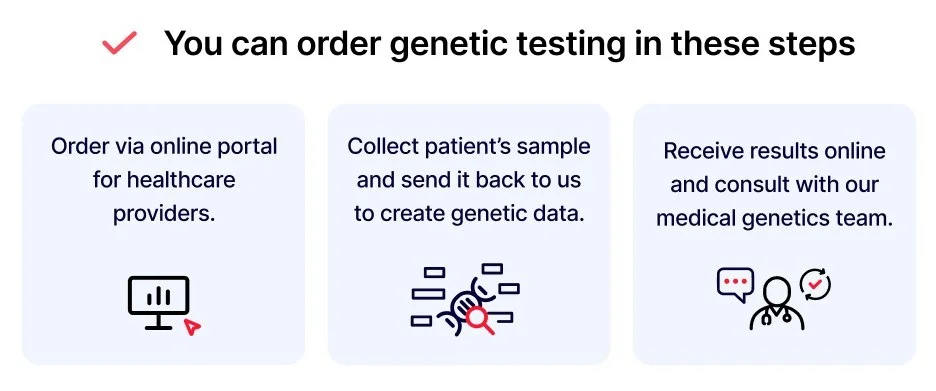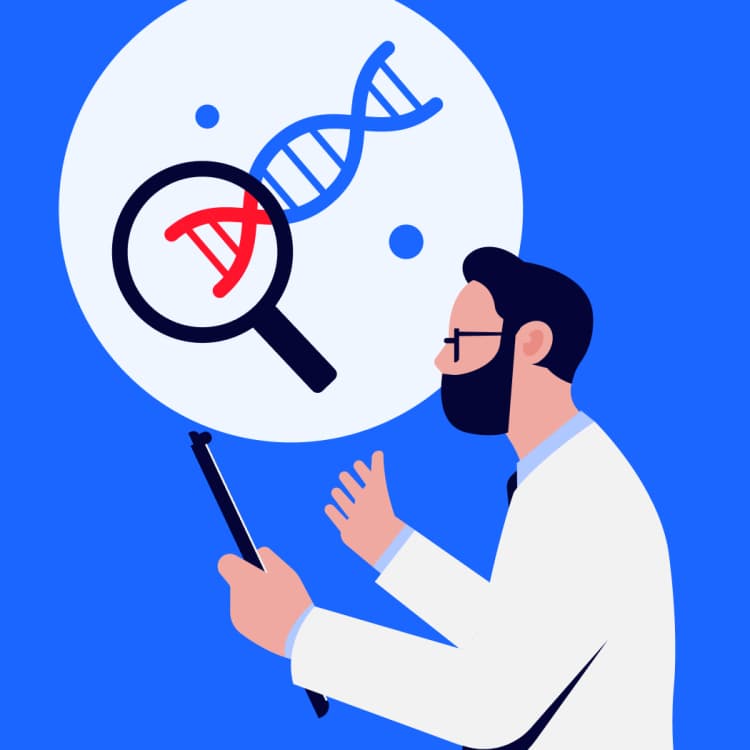Clinical Genetic Testing and the Laboratory

Clinical genetic testing, also known as genetic diagnostics or molecular diagnostics, is a medical examination conducted to analyze a person’s DNA, genes, or chromosomes. It involves the identification and evaluation of genetic variations or mutations that may contribute to a particular disease or condition.

There are many labs and companies that provide clinical genetic testing around the world. These labs play a crucial role in diagnosing genetic disorders, assessing disease risk, and guiding personalized medical management. But finding the best option can be a challenge. It doesn’t mean that a laboratory is the right choice for your patients just because it’s close and affordable. Let’s talk about clinical genetic testing and the way to choose the most appropriate lab for healthcare provider.
Context and purpose
Clinical genetic testing is typically performed within a healthcare setting, such as a hospital or specialized genetics clinic, and is ordered by healthcare professionals.
Its primary purpose is to diagnose or confirm suspected genetic conditions, provide information for treatment decisions, inform reproductive choices, or identify individuals at risk for inherited diseases. The results are usually communicated to the individual through healthcare providers, including genetic counselors or medical geneticists.
Regulatory Oversight
Clinical genetic testing is subject to rigorous regulatory oversight in most countries. It is usually performed by accredited laboratories following established quality standards and guidelines. These laboratories are regulated by governmental or accreditation bodies to ensure accuracy, reliability, and patient privacy. The tests are often conducted within a framework of medical ethics and require informed consent from the individual.
Interpretation and Counseling
Clinical genetic testing typically involves interpretation of results by healthcare professionals, such as genetic counselors or medical geneticists. These professionals have the expertise to explain the significance of the test results, provide appropriate counseling, and guide individuals in making informed decisions regarding their healthcare, treatment options, and family planning.
How to choose the proper clinical genetic testing laboratory
Just because it’s fast and cheap doesn’t mean it’s the best lab. When selecting a clinical genetic testing laboratory, it’s important to consider several factors to ensure that you receive accurate, reliable, and comprehensive testing. Here are some key aspects that you need to check:
- Accreditation and Certification:
Look for laboratories that have appropriate accreditation and certification. This may include accreditation from recognized organizations such as the College of American Pathologists (CAP), the Clinical Laboratory Improvement Amendments (CLIA). Accreditation ensures that the laboratory meets stringent quality standards and undergoes regular inspections. - Expertise and Experience:
Consider the laboratory’s expertise and experience in the specific area of genetic testing you require. Some laboratories specialize in certain types of genetic tests, such as cancer genetics, prenatal testing, or rare genetic disorders. Look for a laboratory with a proven track record and experience in performing the specific test you need. 3billion is specialized in diagnosing rare diseases. - Test Menu and Technology:
Evaluate the laboratory’s test menu to ensure they offer the specific genetic test or panel you require. Additionally, consider the technology and methods they utilize for testing. Look for laboratories that use validated and state-of-the-art technologies, as this can impact the accuracy and reliability of the results. - Quality Assurance:
Inquire about the laboratory’s quality assurance practices. A reliable laboratory should have robust quality control measures in place to ensure accurate and reproducible results. They should follow standardized protocols, participate in proficiency testing programs, and have internal quality control procedures. - Turnaround Time:
Consider the expected turnaround time for receiving results. While this may vary depending on the complexity of the test, it’s essential to have an understanding of how long the process may take. - Counseling and Support:
Consider whether the laboratory provides access to genetic counselors or other healthcare professionals who can help interpret and explain the results. Genetic counseling is an important component of genetic testing, especially for complex or potentially life-altering results. For tests performed at 3billion, our in-house clinical genetics team is always available to counsel and support about reports.

3billion provides optimised WES/WGS genetic testing services for researchers. Many researchers around the world use our proven technology to conduct their research. Get an affordable research quote right now. – You can decide later.
Get exclusive rare disease updates
from 3billion.

YoonJung Shin
Content Marketer







